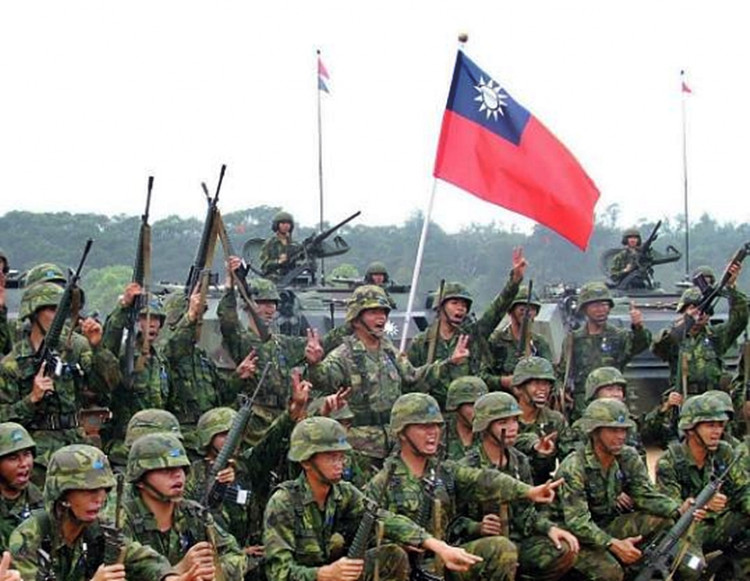Chinese president Xi Jinping again sought to drive deeper the wedge between the anti-China administration of Taiwanese president Tsai Ing-wen and the general population by sounding a more conciliatory tone that again promised the peaceful reunification of China.
Xi's more subdued remarks come at a time of mounting tensions between China and the Republic of China (Taiwan), with the latter drawing strength from its much closer ties with the United States under Donald Trump. Xi kept away from harsh rhetoric against Tsai and her pro-U.S. government in recent talks with former KMT (National Party of China) chairman Lien Chan. KMT is considered friendlier to China than Tsai's more liberal Democratic Progressive Party (DPP) that dominates Taiwan politics.
During the meeting with Chan, Xi said China has the "confidence and ability to keep a firm hold on the correct direction, work for the peaceful development of cross-strait relations, and advance the process toward the peaceful reunification of China."
Xi's calmer rhetoric is being put to the test by the United States' relentless campaign to challenge China's claim to own the South China Sea. Xi also sought to reassure Taiwan that Beijing still supports a range of measures introduced in March designed to give Taiwanese companies and individuals freer access to opportunities and benefits on the mainland.
Xi's more muted tone stands in sharp contrast to louder and more hawkish mainland voices urging confrontation with the United States, which has taken steps that prove its renewed closeness to Taiwan.
Observers in Beijing and Taipei said Xi dialed down the rhetoric to stop it from having a real negative impact on cross-strait relations in advance of new Taiwanese diplomatic moves. Taiwan's top official on cross-strait ties, Mainland Affairs Council Minister Chen Ming-tong, began a nine-day visit the United States on July 16 to improve communication between Taipei and Washington.
Chen is again expected to press Washington for technological assistance in building a new fleet of indigenously-made attack submarines. He is also expected to lobby the U.S. for more support for Taiwan's cross-strait policy.
Taiwan plans to build its own diesel-electric attack submarines as part of a build-up of the Republic of China Navy (ROCN). Taiwan President Tsai Ing-wen in March 2027 announced the launch of a submarine construction program that should see Taiwan build at least eight super-quiet, diesel-electric submarines (SSKs) over the next decades under its Indigenous Defense Submarine (IDS) Program.
Chen's trip comes after two U.S. Navy Arleigh Burke-class guided missile destroyers transited the 100 mile-wide Taiwan Strait on the evening of July 7. This patrol was criticized by China's top Taiwan affairs official, Liu Jieyi, who said Washington keeps playing the "Taiwan card" amid a trade war with the mainland.
"Compatriots across the strait should show empathy, stand in each other's shoes and understand each other better so as to forge closer bonds," said Liu. He noted that the welfare of people across the strait should be promoted.





